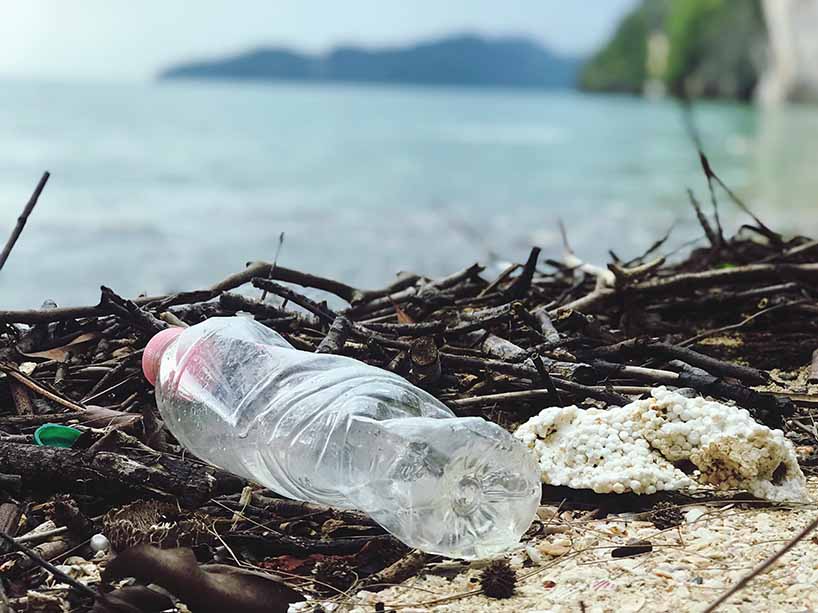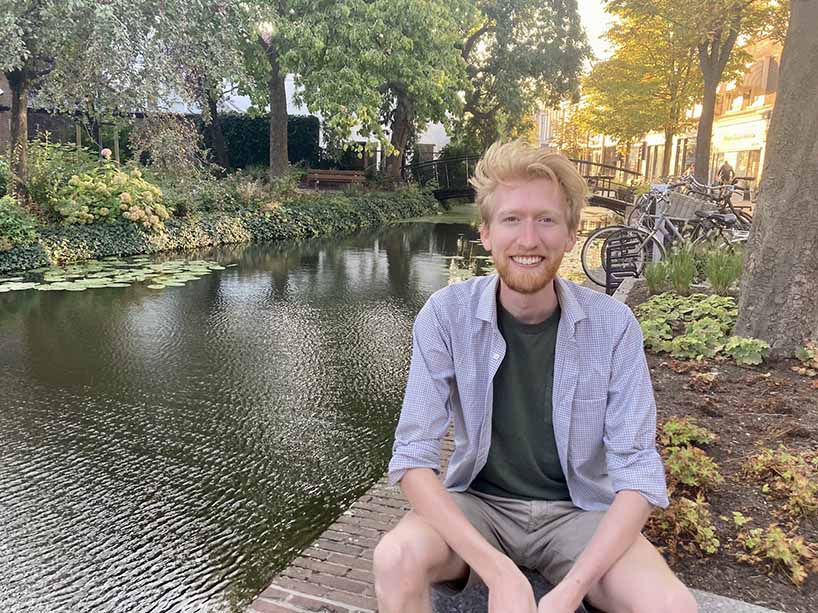How one TMU grad student fosters a campus culture of sustainability

Applied Environmental Science graduate student Christopher Randall shares what it takes to create a culture of sustainability during Plastic-Free July.
During Plastic-Free July, applied environmental science graduate student Christopher Randall was featured as a ‘plastic-free champion’. Randall’s passion is waste practice innovation which fueled his efforts at fostering a culture of sustainability on campus. His grad studies research is currently focused on sustainability and environmental management.

Canada is one of the highest generators of plastic waste which contributes to more microplastics in the natural environment. Photo by Catherine Sheila via Pexels
“It might seem odd to study environmental studies in Canada's most urban university… but it allowed me to use the city as a living laboratory to better understand how complex political, economic and social situations integrate with the physical environment.”
We spoke with Randall to find out more about the waste strategies he helped implement at TMU, and why it’s important to support the campus Plastic-Free July campaign organized by the Sustainability Office and connected to a global movement that aims to reduce or eliminate the use of single-use plastics. Read more to find out how creating daily habits in support of sustainability can create life-long changes and contribute to community-wide transformation.

In 2022, TMU grad student Christopher Randall visited The Netherlands and explored the charming city of Gouda. The city's water features and tree-lined streets create a stunning urban landscape, showcasing sustainable and people-centric green infrastructure.
How did you promote a culture of sustainability at TMU?
I was a former residence advisor at TMU and participated in the Sustainability Residence Leaders Program program created in partnership with the Sustainability Office and Housing & Residence, as well as other departments like TMU Eats, which provided student leaders with the tools, resources and training to support sustainable student choices.
This program was part of an overall push to make the broader campus community, not just residences, more sustainable, and allowed student leaders to engage with new university students to empower them to model sustainable routines and habits that can stick throughout their university careers and beyond.
Different cities and countries have varying approaches to waste management, so I was inspired to get involved after noticing that many students were struggling to adapt to new waste systems. Even local residents can be unaware of the correct practices.
The program employed a community-based social marketing approach, emphasizing sustainable behaviour role modeling rather than relying solely on education to drive behavioral change. And I found that students are eager to learn and adopt a more sustainable and waste-free lifestyle.
As an example, we did a survey that included scenarios relevant to the residence context, with a pizza party prize for the floor with the highest participation as incentive. One scenario involved a late-night pizza delivery and determining the appropriate waste stream for the pizza box.
The survey yielded positive results, with a 17% increase in self-reported confidence in waste sorting. It also identified areas for improvement in waste management, such as 80% of surveyed students expressing interest in having a compost bin in their rooms. Additionally, 90% of surveyed students pledged to try living a zero-waste lifestyle and sorting recyclable and compostable items whenever possible. We just need the educational programs and the upfront structural investments to make sure that that is possible.
Can you share some highlights during your undergraduate studies in Environmental and Urban Sustainability?
It might seem odd to study environmental studies in Canada's most urban university, so far removed from what people often think of as nature. But it allowed me to use the city as a living laboratory to better understand how complex political, economic and social situations integrate with the physical environment.
In field studies we worked with peers to conduct a research study, develop the methodology and execute it within the city that quantified green space access in different socioeconomic neighbourhoods. We were able to identify inequities in access to environmental amenities like park space, and better understand how people use nature, as well as how we can create a more equitable parks system.

A student of the environment, Christopher Randall encourages others to spend time in nature, even if it’s on campus or at a local park.
Can you share details of any current research you are pursuing as part of your graduate studies?
I'm pursuing a master's of applied science in the environmental applied science and management program. My research seeks to understand how society and environment interactions alter flood hazard risks. Essentially, I am trying to understand how people use the urban public waterfront – how do they think about risk and how do these perceptions match adaptation strategies. I pay a lot of attention to land use planning and transportation modes, and my project concentrates on Vancouver, the False Creek and Fraser River, which are areas of high flood risk.
There are a lot of conflicting demands about how the space should be used including considerations for housing, transportation, industry and green spaces. Using mixed methods I am attempting to connect how people think about flood risks to things like use values and governance, and help unpack why decisions are made and for whom.
This is important because flooding is Canada's most costly and frequent natural hazard. It's also set to increase because of development pressure and climate change. And risk is often unequally distributed, so we need to ensure that adaptation strategies work and that they also have co-benefits to improve people's livelihoods.
In the future, I’d like to work with people to adapt to climate change and create more equitable, lively, sustainable communities that are more resilient to the risks that we're facing.
Why should our campus community be involved in campaigns like Plastic-Free July?
Reducing waste will help us avoid a lot of environmental problems such as microplastics and ecosystem harm. And the impact goes far beyond our campus and local urban environment.
Our community should get involved because change can be easy and rewarding. It often helps us save money, improves our health and allows us to do something good. I would definitely encourage people to take the Plastic-Free July pledge. Maybe become a sustainability ambassador with the Sustainability Office. Become involved in local advocacy, both at the campus level and beyond. There's lots of minors and electives to take that allow you to learn more about sustainability as part of your curriculum that will engage you within your discipline.
Lastly, just being mindful of your connection to nature. This doesn’t mean you have to go rock climbing or camping, just appreciating your local park or neighbourhood or the TMU campus, the trees along Gould Street, and reflecting on the environmental legacy that you want to leave behind.
Take the Plastic-Free July challenge to win prizes! Choose to refuse single-use plastics and take action to end plastic waste. Visit TMU’s Instagram page for details on how to participate (external link) .
And learn more about how to adopt sustainable habits into your everyday life with the Sustainability Guide which outlines simple but meaningful actions towards living, working and studying sustainably at TMU.